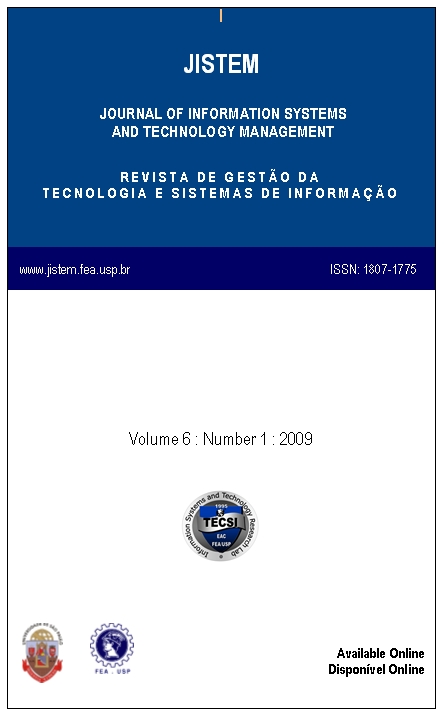ERP systems implementation in complex organizations
DOI:
https://doi.org/10.4301/S1807-17752009000100005Palavras-chave:
Complex Systems, Organizational Change, Organizational Evolution, ERP Systems Implementation, Systemic ApproachResumo
ERP (Enterprise Resource Planning) systems implementation is a great organizational change, which many times does not reach the desired results. This paper proposes to help understand this implementation, considering that the knowledge of change and evolution processes in organizations may lead to other aspects to be considered, assisting in the identification of the most appropriate actions, restrictions and items that may help sustain the change. It proposes a complex organizational reference model to contribute understanding of the implementation process. Research results show that the concepts proposed in this model - subsystems, emergence, behavior attractors and complexity limits - apply to organizations and contribute to the understanding of the changes triggered by an ERP system implementation. Among other contributions, this work shows the importance of potential generation for change, the relationship among the behavior attractor and competitive advantages gained, and organizational systems maturity considerations.Downloads
Os dados de download ainda não estão disponíveis.
Referências
Downloads
Publicado
2009-01-01
Edição
Seção
nd630548541
Como Citar
ERP systems implementation in complex organizations . (2009). Journal of Information Systems and Technology Management, 6(1), 61-92. https://doi.org/10.4301/S1807-17752009000100005



